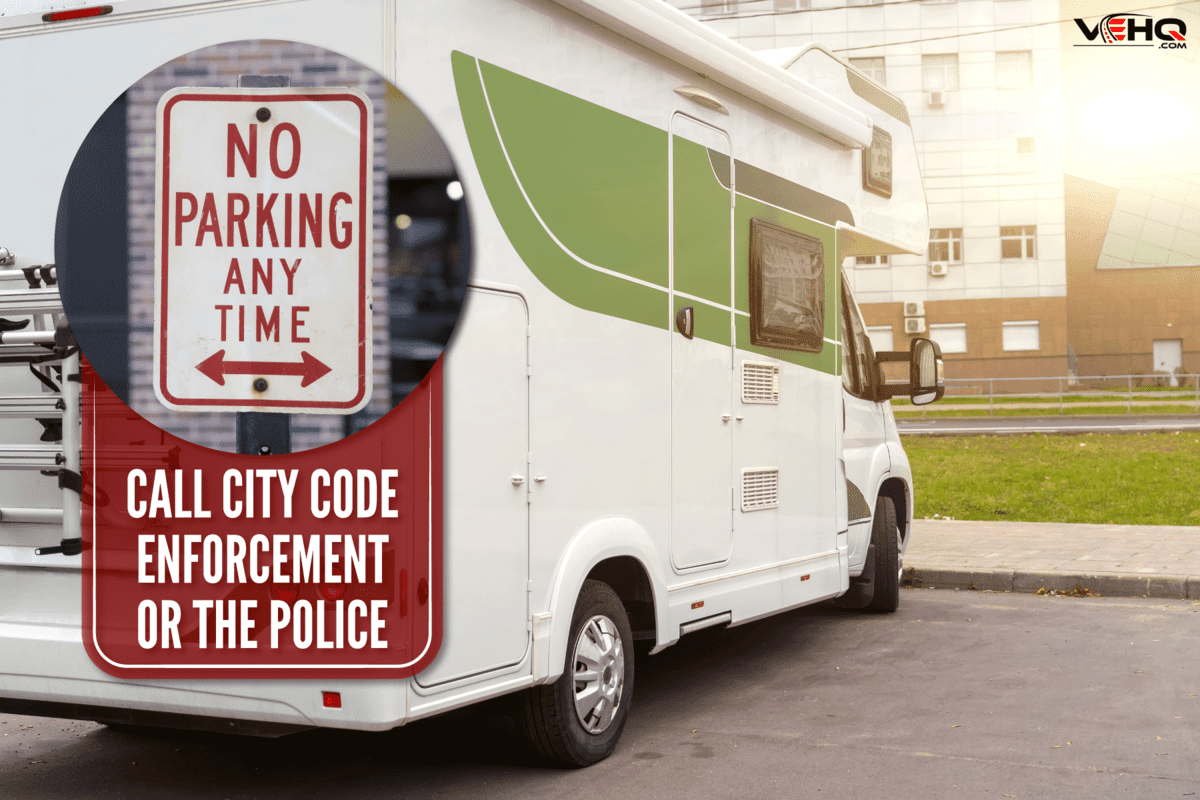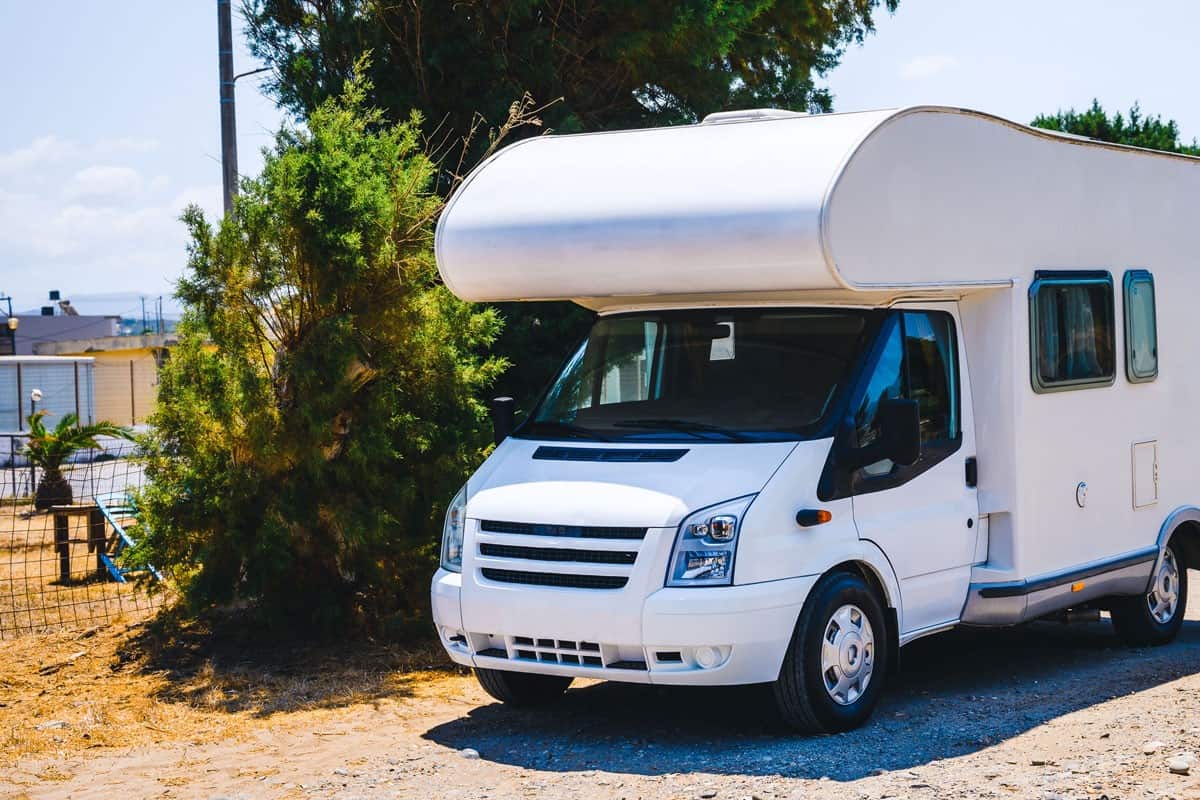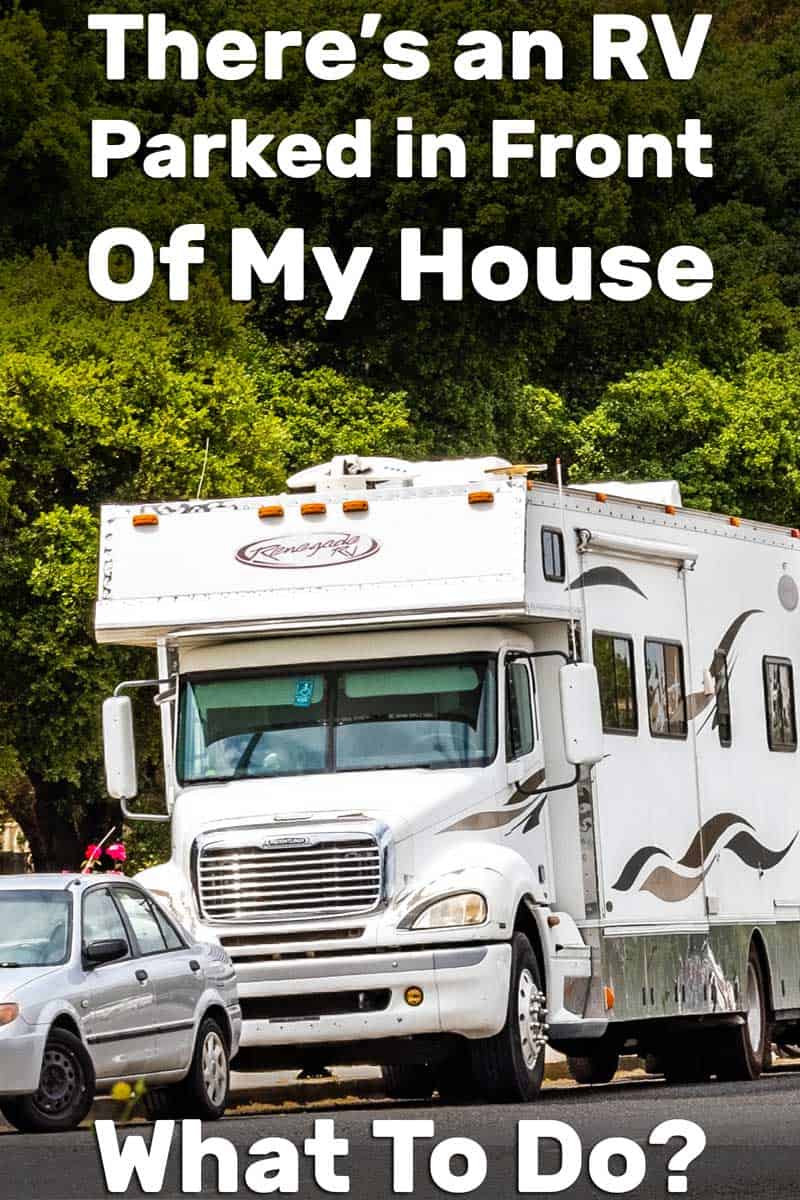You wake up one morning to find a giant RV parked in front of your house, blocking your view. This RV parked in front of the house is not yours and doesn't belong to any neighbors.
Days pass, and the RV parked in front of my house hasn't moved. Now what? This is an unfortunate situation to find yourself in, but it's not without options. In this article, we'll cover everything about dealing with unwanted RV parkers.
You'll feel confident tackling this issue head-on once you know the reasons an RV might park in front of your house and how to report it to authorities properly.
At-A-Glance Solution
While the process can vary on a local or state level, if there’s an RV parked in front of your house that doesn’t belong to you, you should call city code enforcement or the police (on a non-emergency number). If the vehicle hasn’t moved in several days, it’s likely breaking an ordinance or law, such as illegal street parking.

Why Would an RV Park in Front of My House? [Solutions]
Why would someone park their RV on your nice residential street? There are two main reasons. First, someone could be living in the RV. In pricey cities like those in California, many live in RVs. Here, RV living has rules, but it's not always illegal.
Some live in RVs because they can't afford housing. Others live in RVs for ease. This can be illegal unless allowed by city laws. Second, the RV owner might have needed a place to stay overnight and didn't plan their trip well.
Most cities ban overnight RV parking on public roads. So, the owner looked for a spot on a residential street. You may ignore it one night, but not for several nights.
Read more: RV Laws In California You Should Be Aware Of [Inc. Parking Laws]
What Size RVs Might Park on Your Street?
There are several sizes of recreational vehicles you might spot on your street:
- Class A RVs: The largest RVs, typically 29-45 feet long. Their huge size can block most of your street.
- Class B RVs: Much smaller, usually 16-19 feet long, about the size of a van.
- Class C RVs: In between Class A and B in size, generally 20-41 feet long.
Class A RVs cause the most trouble because of their large size. Parking a Class A RV on a residential street often means it will stick out into the road. Class B RVs usually fit well, but Class Cs might extend a bit into the road.
You can report an RV of any size if it's parked illegally. Authorities might ask the owner to move it elsewhere.

Who Should You Report the RV To?
Before reporting the RV, take photos or videos documenting the violation. Show that the RV is parked illegally, blocks access, hinders visibility, and hasn't moved for days. Photos dated with timestamps help strengthen your case when filing a report.
Take photos from different angles to show the RV blocking the road, driveways or staying past the allowed parking time. Videos can capture safety risks like cars nearly hitting the RV as they pass.
Listing the exact laws broken helps ensure authorities act without delay. With evidence, authorities will take your complaint seriously, speeding up the RV's removal.
City Code Enforcement
City code enforcement is usually best for reporting illegal RV parking. In San Diego, you can report illegal RV parking online or by phone.
San Diego has specific rules against parking oversized and recreational vehicles on public streets during certain hours. Before reporting, try talking to the RV owner if you can. Remember, reporting steps and penalties differ by location. Know your local laws.
Law Enforcement
Contacting local police on a non-emergency number is suggested for a parked RV, especially if it's been there for days, as it may violate local laws.
Generally, law enforcement or code enforcement will first talk to the RV owner if present and ask them to move it voluntarily. If talking fails, the city may issue citations or impound the RV.
In Los Angeles, the Parking Violations Bureau can dispatch an officer. In Portland, the Parking Enforcement Division or non-emergency police are options. Familiarize yourself with local procedures.

How Long to Wait Before Reporting the RV
There's no set time to report. Yet, if an RV breaks local laws or is unsafe, report it right away. If unsure about the law, wait a day or two to see if the RV moves.
Yet, if the RV stays put for 2-3 days, report it. Report an illegal RV quickly so authorities can act fast. Don't let the issue drag on if it bothers you and your neighbors.
Common Parking Laws the RV Could Be Breaking
If an RV is parked in front of your house for several days, there are some common parking laws it may be breaking, depending on your local ordinances:
- Exceeding time limits - Many cities allow RV parking on public streets for a limited time, usually between 24 to 72 hours. Parking for an extended period likely violates these time limits.
- Blocking access - It's often illegal for RVs to block driveways, mailboxes, or fire hydrants.
- Close to intersections - RVs usually have set distance limits for parking near intersections, stop signs, and crosswalks to maintain visibility.
- Street type restrictions - Some cities ban RV parking on narrow streets, cul-de-sacs, and in residential areas unfit for large vehicles.
- HOA rules - Many homeowners' associations regulate RV parking. Parking in the community may violate HOA covenants.
- Registration and permits - Most areas require RVs to be registered and permitted with the DMV. Authorities can check if it's legally registered.
- Noise violations - Running RV generators continuously often breaks noise laws.
What If No One’s in the RV? What Do You Do?
Abandoned RVs are vehicles left on public or private property without permission, typically for 24 to 48 hours. Local laws dictate how to handle abandoned RVs.
For example, in Stanislaus County, vehicles can't be parked in one spot for over 72 hours. Report a 72-hour parking violation to the Sheriff's Office or Highway Patrol. Chicago had a program for removing abandoned vehicles, but details might have changed.
It's important to check your local laws on abandoned vehicles. If the RV is abandoned, tell the police. They may tag it, giving the owner 24 hours to claim it before impounding it. Follow your area's rules for reporting and removing deserted RVs.
In Conclusion: How to Handle an Unwanted RV Parked in Front of Your House
Dealing with an unwanted RV parked in front of your house can be frustrating. But by understanding local laws and following the right steps, you can resolve the issue.
If an RV is parked in front of your house for several days, contact city code enforcement or non-emergency police, as it likely violates parking laws. Local rules differ, so check your municipal ordinances on RV parking time limits and restrictions.
Many cities ban RV parking on residential streets, while some permit it briefly for loading or unloading. Before parking your RV, check state and city rules. For example, Los Angeles bans RV parking on sidewalks and near homes.
Texas requires permits to park RVs on residential property. Homeowners' associations often have RV parking regulations too. With the right info and support from authorities, you can keep your neighborhood RV-free.


What about the law ? Call to the police , Or call to the Israeli speical commando ….!!!!!!
Its unsightly and dangerous on a residential
street. For the amount of property tax one pays, youd expect there to be more ordinances against this especially how it looks and when its a stranger parked there! Its like someone squatting and establishing residency in your front yard. Didnt want my street looking like the beverly hillbillies lol
If they can afford to buy the RV /’Trailer /’Camper they should be able to pay for a parking place in a park where it is permitted .